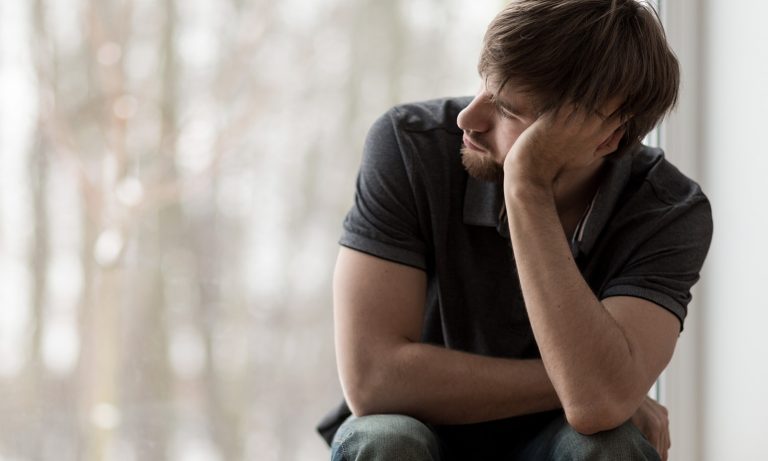 Feeling Depressed isn’t a sign of weakness.
Feeling Depressed isn’t a sign of weakness.
Ishtpreet Singh, Seneca College
Depression is a word that appears to be straightforward yet is not. Every year, millions of people die from depression, which also encourages other destructive behaviors like substance misuse. Despite popular belief, depression is not primarily a female condition. According to studies, gender has no bearing on disease. One experiences depression because of pressure or mental health issues. Men are thought to be emotionally stronger than women, hence it is thought that they do not generally suffer from it. To learn more about the subject, I conducted few interviews and conducted other research projects.
The chart above shows data from research done by Statistique Canada in 2020. It divided the condition in 3 parts: fair, poor and excellent. The chat clearly shows that in 2020 males were more diverted towards a fair and poor mental health, whereas when we saw excellent females were leading.
Symptoms of Depression in males
It is well known that men began to experience mental diseases more frequently around 2010 because of societal pressure and the strain of providing for their families. To relieve their stress, men are more likely to turn to substance usage. Men may be more likely than women to experience rage, act aggressively, and abuse substances, despite the fact that sorrow is frequently the main symptom of depression in many people.
Undiagnosed Depression: Is it even a thing?
Many men may suffer undiagnosed depression due to the varied symptoms and the fact that males are often less willing to discuss and seek treatment for depression than women.
The signs of depression in men and women are very different. Males who are depressed begin to isolate themselves from their friends and family, work longer and more obsessively, and are more prone to commit suicide. These behavioral alterations are brought on by men's attempts to hide their despair and follow presumptive "masculine norms." Men may lash out or indulge in self-destructive habits as a result of this attempt to hide their despair.
As stated above, males are more likely to go towards drugs, But it is very strange to know that males tend to use illegal drugs like heroine way more than females.
Additionally, men who are depressed may lose interest in their passions and hobbies or feel less driven to perform at work.
A man's sex drive may also be impacted by depression. Men who are depressed could be less interested in having sex and might have issues performing sexually.
Depression in Teens
Moving toward a world that is more realistic. Gurkirat Singh, a young man who experienced depression as a teen, was the subject of my conversation. His initial signs included having low self-esteem and beginning to isolate himself. He started smoking marijuana and had daily suicidal thoughts, both of which had an adverse effect on his physical health. Males are more inclined to turn to drugs, as I've already mentioned, and his doctor concurred.
Depression in Canada
Women are nearly twice as likely as males to develop serious depression, according to data from the Centers for Disease Control and Prevention (CDC)Trusted Source for the years 2013 to 2016. The estimates for males may, however, be higher because it's possible that more men than women choose not to disclose depression.
Two-thirds of Canadians with depression, according to some estimates, have not yet been given a diagnosis.
Male depression may be misdiagnosed by a physician. Men may be more prone to report physical problems than emotional issues, such as trouble sleeping. As a result, the physician can make a mistaken diagnosis.
Additionally, frequent emotional or behavioural indicators of depression in men may be misinterpreted by people. Instead of seeing anger as an indication of sadness, they can view it as a personality attribute. They might also misjudge the motivations behind a person's increased risk-taking or drug use.
Coping Strategies
Even though it is a severe mental disorder. A proper diagnosis and course of treatment can quickly cure it. The interviewee's depression was treated within 1.5 years. In our conversation, he informed me that family support is more useful and crucial than any drug. Since depression is not a physical disorder, medication may not always be necessary. With the right assistance and recreational activities, it is quickly curable. According to Dr. Jasmine (Psychiatrist) “Depression should no longer be viewed as a sickness; instead, I will refer to it as a persistent mood swing. Medication should always be a last resort because I've also seen people heal without using any anti-depressants.
A person can manage depression with the help of specific lifestyle adjustments and coping mechanisms in addition to other treatments. For instance:
Exercise regularly: Running or even brisk outdoor walking can release endorphins and improve mood.
• Adding structure: Following a regular schedule may make each day feel a bit less difficult.
• Task division: Dividing large jobs into smaller ones can help when they seem insurmountable.
• These exercises—yoga, mindfulness, or meditation—can help people feel better and reduce stress.
How to help someone
It is critical to talk to a close male friend, partner, or family member if you observe indicators of depression in them. An effective initial step is to inquire about how someone is feeling if they appear to be depressed. Making an effort to listen well is crucial.
Encourage them to schedule a medical appointment after that. Remind them that they can start by talking about physical symptoms, which can frequently lead to a wider discussion about other symptoms, if they are hesitant to talk about how they feel emotionally.
When offering someone with depression support, it's critical to exercise patience. Relationship issues can occasionally result from the behavioural symptoms of male depression. Try to talk about problems without passing judgment.

Be the first to comment